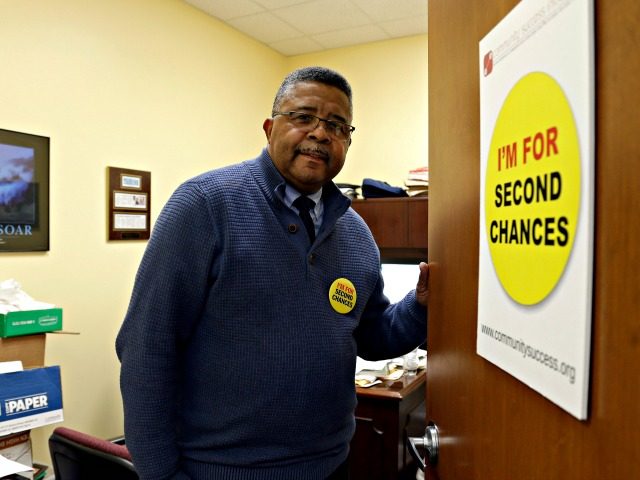Californians for Safety and Justice, the American Civil Liberties Union, and the League of Women Voters are backing ballot measure Proposition 17, which would give felons who are still on parole and those paroled for life because of serious felonies like murder the right to vote in California.
Ballotpedia explains how the proposition would change voting rights in the state and how it stacks up to other states across the country:
Currently, the California Constitution disqualifies people with felonies from voting until their imprisonment and parole are completed. The ballot measure would amend the state constitution to allow people with felonies who are on parole to vote; therefore, the ballot measure would keep imprisonment as a disqualification for voting but remove parole status.[1]
California is one of three states that require persons convicted of felonies to complete their prison and parole sentences before regaining the right to vote. As of 2020, 19 states allowed people convicted of felonies, but who were on parole, to vote. Seventeen of these states did not allow people to vote while imprisoned. Two—Maine and Vermont—allow people who are imprisoned to vote.The remaining 28 states had additional disqualifications—compared to California—for people convicted of felonies. Eighteen disqualified people who were imprisoned, on parole, or on probation. Seven prohibited people convicted of certain felonies from ever regaining the right to vote. In Iowa, Kentucky, and Virginia, people convicted of felonies never regain the right to vote, although their governors can issue orders to restore voting rights to individuals or groups.
The San Francisco Chronicle interviewed a man recently released on lifetime parole after spending 30 years in prison for “aiding in a murder.”
“I feel as though my voice doesn’t matter, my opinion doesn’t matter,” Windham said in an interview included in the Chronicle report. “You take my money (in taxes) every month, but yet I can’t say what you do with my money and who’s in office.”
Windham is among some 50,000 parolees who could change the election landscape if given the right to vote.
The Chronicle explained the support for and critics of the proposition:
Opponents of Prop. 17, including the advocacy group Crime Victims United of California, argue that parolees do not deserve to vote.
“Parole is the adjustment period when violent felons prove they are no longer a violent threat to innocent citizens,” they said in the ballot pamphlet. Prop. 17, they said, “will allow criminals convicted of murder, rape, child molestation, and other serious and violent crimes to vote before completing their sentence, including parole.”
“People on parole who have completed their prison sentences raise families, hold jobs, pay taxes, and contribute to society in every other way,” supporters said in the state’s ballot pamphlet. “Restoring a person’s voting eligibility removes stigma and helps strengthen their connection to the community.”
In early September, California Secretary of State Alex Padilla reported $378,793 contributed to Yes on 17, and zero to the opposition.
Follow Penny Starr on Twitter

COMMENTS
Please let us know if you're having issues with commenting.